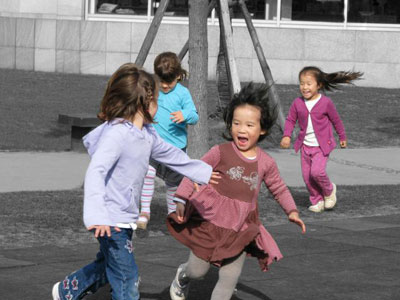All Nonfiction
- Bullying
- Books
- Academic
- Author Interviews
- Celebrity interviews
- College Articles
- College Essays
- Educator of the Year
- Heroes
- Interviews
- Memoir
- Personal Experience
- Sports
- Travel & Culture
All Opinions
- Bullying
- Current Events / Politics
- Discrimination
- Drugs / Alcohol / Smoking
- Entertainment / Celebrities
- Environment
- Love / Relationships
- Movies / Music / TV
- Pop Culture / Trends
- School / College
- Social Issues / Civics
- Spirituality / Religion
- Sports / Hobbies
All Hot Topics
- Bullying
- Community Service
- Environment
- Health
- Letters to the Editor
- Pride & Prejudice
- What Matters
- Back
Summer Guide
- Program Links
- Program Reviews
- Back
College Guide
- College Links
- College Reviews
- College Essays
- College Articles
- Back
Equality To What Extent?
The Supreme Court recently heard two very controversial cases addressing the subject of marriage equality in the United States. This heated topic has caused an uproar of varied opinions and support throughout the nation, however, the controversy exists beyond the bounds of marriage itself. With the increase of homosexual couples wanting to start families, attention has been drawn to their means and abilities to adopt and raise children. While few adoption agencies remain unbiased in their choices for matching children with parents, a common belief that same-sex couples are less equipped than straight couples to raise a child acts as a hindrance for many loving people seeking the opportunity to start a family. Despite the different arguments and concerns, gay and straight couples should have equal opportunities and rights when it comes to having families and adopting children.
One of the greatest reasons for opposition of gay parenting is the concern for the well-being of the child being raised. While a child’s sexual identity and emotional health are thought to be at risk when raised by homosexual parents, there is no sufficient evidence to support this belief. A brief by the American Psychological Association stated, “Not a single study has found children of lesbian or gay parents to be disadvantaged in any significant respect relative to children of heterosexual parents.” So why would we make it so that children without homes would be held from gay households where they could potentially grow and prosper?
The ideal structure of an American family and its effect on the individual members is something that is also highly debated. The traditional mother-father family environment is one that many Americans do not want the average family to stray from. While normalizing gay parenting would be altering the family structure, the outcome would not necessarily be negative. High divorce rates in recent years have already caused a shift in family structure, increasing the number of children raised in single-parent homes. Approximately 43% of children in the US today live without their father. From a personal point of view, living with my mother and visiting my father on the weekends was definitely not the traditional way a child was to be raised, but with the love that both sides of my family showed me, I grew up to be a successful student and an emotionally stable person. A scholar at the University of Cambridge, Michael E. Lamb, asserted in a recent study that neither family structure nor having a biological mother and father in the home “is necessary for healthy child adjustment.” Because traditional structure is not a necessity, the key component to a successful upbringing must be found somewhere else.
Rather than focusing on the structure of the family, psychiatrist, Dr. Fari Amini, used his knowledge of psychiatry and neuroscience to try and understand the importance of love on the development of children. He formed a theory about the correlation between love and learning along with the impact that love can have on a child’s mental health. Many of the skeptical viewpoints on gay parenting are so caught up with the “family structure” that they forget that the most important aspect of a child’s upbringing is being loved and wanted by both of their parents, regardless of gender or sexual orientation.
According to the Department of Health and Human Services, there were around 123,000 children waiting to be adopted in 2008. Because gay marriage is not yet recognized in the majority of the United States, more difficult routes must be taken for gay couples to adopt children. Their two options include joint adoption, which is legal in thirteen states, and second parent adoption, which is legal in only nine states, both of which make the road to adopting their child more complex and tasking. If according to the Evan B. Donaldson Adoption Institute, children raised in homosexual and heterosexual homes display “similar accomplishments” throughout their lives, then why is there still such hesitation to grant gay couples full equality in the adoption process?
With a growing and changing society, Americans must realize that growth in regards to family is not something to fear, but rather something to look forward to. We have, by no means, perfected the family system and should continue to seek improvement in any way possible. By giving gay couples the full right to parenthood, we will be extending the equality that our nation was founded on and allowing many children to be raised in loving homes that they would not have been otherwise. Change is inevitable, and at this point, our best option is to embrace it.

Similar Articles
JOIN THE DISCUSSION
This article has 0 comments.